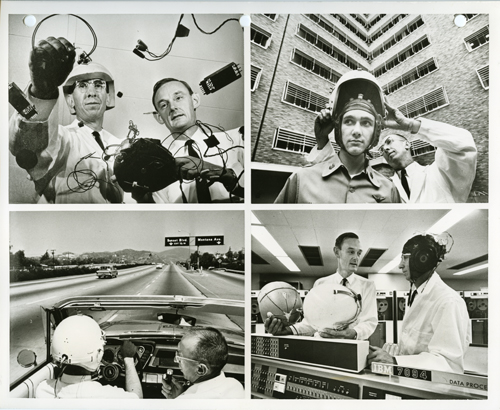“This Guy Wants To Help You Download Your Brain” is Monica Heisey’s Vice interview with Russell Hanson, who’d like you to do a backup of your most important files, to make a copy of your gray matter in case of accident or virus. An excerpt:
“Question:
So once a brain has been imaged, can you effectively play back that information, like a tape?
Russell Hanson:
A single snapshot is a static image, so you can’t play something back that doesn’t have a time series associated with it. Conceivably, you could ‘rewind’ just as you can peer back in time into your memories. The way different people access different pieces of their memories is hierarchical and everything is built upon prior experience, so you would have to build a special kind of ‘relative knowledge engine’ that needs to construct the mechanism of accessing the memories for each person individually. Research has shown that the brain is very poor at telling wall-clock time, and is affected by all sorts of things, like whether we caused an event or not. So no—you can’t really ‘play back’ the information in the kind of frame-by-frame or second-by-second manner we’re used to with audio or visual recordings.
Question:
The connectome, from my understanding, is simply the documentation of connections, but provides no information about what is being passed between neurons at these points. If you can’t play back or otherwise access the information in your brain, what’s the use to the average person of having a map of their brain’s pathways?
Russell Hanson:
The goal of the work is to build the infrastructure to make this data usable and interesting. It is pretty clear that having the brain map is a necessary first component to ‘playing back’ or ‘running’ a meaningful dynamical simulation of a brain, whether it’s a mouse, fly, or human. We decided to tackle this engineering challenge first before the other one—that’s being worked on by other very capable groups. In its simplest form, this research will surely inform treatments for devastating diseases like Alzheimer’s, Parkinson’s, autism, depression, and others—research that the governmental funding agencies have a long history of supporting.”
Tags: Monica Heisey, Russell Hanson

